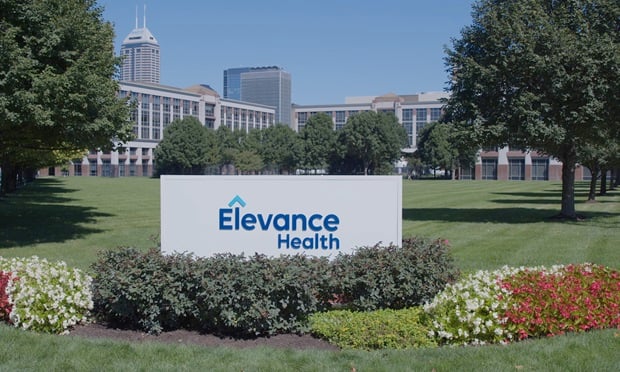 There is no question that subrogation and reimbursement cases can sometimes create tension between employees and employers, but the plan sponsor likely has a fiduciary duty to engage in activities that will ensure prudent management of plan assets, and ultimately, the financial viability of the plan. (Photo: Shutterstock)
There is no question that subrogation and reimbursement cases can sometimes create tension between employees and employers, but the plan sponsor likely has a fiduciary duty to engage in activities that will ensure prudent management of plan assets, and ultimately, the financial viability of the plan. (Photo: Shutterstock)
Employers far and wide struggle with a very important decision; when offering a health benefit plan to its employees, should the plan engage in subrogation and reimbursement activities? Why would a plan/employer want to do, or not do, such a thing? Don't subrogation and reimbursement negatively impact the very plan participants the plan is designed to benefit? Perhaps of even more concern, will employees of the company view this as the employer taking money from the employees? Or is there some bigger force at play that would encourage, perhaps even require, that a benefit plan engage in subrogation and reimbursement?
Wait… what the heck is subrogation and reimbursement, anyway?
|Subrogation
In a nutshell, subrogation and reimbursement are methods utilized by benefit plans to recover money against parties who may have caused, or in some way be responsible for, an injury or loss that resulted in payment by the benefit plan on behalf of a plan beneficiary. Subrogation and reimbursement, while inextricably related, operate in different, very important ways.
To illustrate, let's first consider a subrogation hypothetical. Subrogation is the right of a benefit plan to “step into the shoes” of a plan participant and seek to enforce any underlying right that participant may have had against some other party. Imagine that John Owner is driving a vehicle and because he was awestruck by lighting in the sky, he loses control and runs into an embankment. Assuming these are the only facts that lead to his accident, one can easily conclude that John's own lack of attention lead to the car accident. John goes to the hospital because he is experiencing neck pain, provides his health insurance card, and incurs $10,000 in medical expenses that are thereafter paid by his health plan.
Several months later John receives a phone call from a representative of his health plan asking John why he didn't access his medical coverage through his auto insurance policy. John indicates that he didn't realize this coverage was available to him, and now that all his bills have been paid by his health benefit plan, doesn't want to have to go through the hassle of obtaining money from his auto insurance plan. How can a benefit plan seek recovery from that policy which likely is primary in this hypothetical?
Enter subrogation! It is through the right of subrogation that John's health benefit plan can now “step into John's shoes” and bring a claim against that auto insurance policy in John's name. The ability to bring this claim allows the plan to recoup the $10,000 in medical benefits it paid from this policy and put the funds back in to the health plan for use to pay for the future medical claims incurred by John, his family, and all his coworker's and their families.
|Reimbursement
Now let us illustrate the concept of reimbursement. Imagine the exact same hypothetical, except that in this accident John Driver wasn't distracted by the majestic sky, in fact, it was Distracted Donna who was behind him and couldn't take her eyes off the lighting causing her to rear-end John, resulting in his losing control of the vehicle and running into the embankment.
Now, in this case John incurred $100,000 in medical benefits. He still can access the $10,000 policy discussed above, but he also now has a claim against Distracted Donna, who, fortunately, happens to have a $250,000 liability insurance policy. At the advice of his attorney, John goes ahead and files a claim against Donna. While all of this is happening, John's health plan is receiving and paying the $100,000 in medical bills that he incurred. Several months later, John settles his claim for $250,000 and reimburses his health benefits plan the $100,000 it paid in relation to this accident.
Why would John do that? Well, quite simply, John's medical benefits (like those of most Americans obtained through an employer) are intended to pay for treatment of an injury or illness, but not when another party may be responsible for the injuries or illness sustained. This is a standard concept that is well known and provided for in most health insurance policies. A party who causes injuries to another should be held responsible for their wrongdoing, to include compensation to the person whom they wronged. That is the very basic idea that is in play when discussing subrogation and reimbursement.
These tools allow a benefit plan to pay medical benefits only when it is the responsibility of the plan participant to pay them and ensure that any third party who may be responsible is required to pay for the damage they caused.
|Costly process for employers
Now, considering these examples one might wonder why a benefit plan might not want to engage in these types of activities which allow a plan to pay only for what it should be responsible for, There are several. First, bear in mind that many “benefit plans” are sponsored by the employer of the injured person. That means that even though the employer itself has no right to any of the money being recouped since its going back to the benefit plan for the benefit of all the employees and their families, employees still sometimes feel that the employer is benefiting from their plight. Other employers simply don't want to have to bother with the process of actually recovering these funds which can be very difficult, legally involved, and incredibly costly. Unfortunately, the law may require that benefit plans engage in these types of cost saving activities to ensure that the plan assets are being prudently managed.
Providing insurance to employees, either through a fully insured or self-funded benefit plan arrangement, is generally governed by the Employee Retirement income Security Act of 1974 (ERISA). ERISA, among other things, enumerates the requirements and limitations of establishing a benefit plan as well as the duties of the parties who take it upon themselves (or perhaps are required to under applicable law) to provide benefits to their employees. Perhaps the most important duty of plan sponsor has is a fiduciary duty to prudently manager plan assets. In pertinent part 29 U.S. Code § 1104. Fiduciary duties, provides:
Prudent man standard of care: … a fiduciary shall discharge his duties with respect to a plan solely in the interest of the participants and beneficiaries and—
- for the exclusive purpose of (i) providing benefits to participants and their beneficiaries; and (ii) defraying reasonable expenses of administering the plan;
- with the care, skill, prudence, and diligence under the circumstances then prevailing that a prudent man acting in a like capacity and familiar with such matters would use in the conduct of an enterprise of a like character and with like aims;
- by diversifying the investments of the plan so as to minimize the risk of large losses, unless under the circumstances it is clearly prudent not to do so; and
- in accordance with the documents and instruments governing the plan insofar as such documents and instruments are consistent with the provisions of this subchapter and subchapter III.
Stated simply, a plan that provides for cost-containment activities, and specifically if it provides for subrogation and reimbursement, has a fiduciary duty to engage in such activities to protect the assets of the plan and ensure those assets are being prudently managed.
|Where plan fiduciaries come in
In perhaps one of the most well written opinions addressing subrogation and third-party reimbursement claims, the 11th Circuit Court of Appeals goes to great lengths to lay out the rationale for subrogation and third-party recovery activity and why it may be a requirement of any benefit plan's administration. Specifically, in the case of Zurich American Insurance Company v. Keith O'Hara, Ross & Pines, LLC, 2010 U.S. App. LEXIS 8570, (April 26, 2010). The Court held that the primary purpose of ERISA was to ensure the integrity and viability of bargained for benefit plans and those plans must be enforced as written.
The Zurich Court went on to state that although the participant would be in a better position if the subrogation provision was not enforced, plan fiduciaries must be impartial and account for the interests of all the beneficiaries. Reimbursement inures to the benefit of all participants and beneficiaries by reducing the total cost of the plan.
If the participant were relieved of his obligation to reimburse the Plan for the medical benefits it paid on his behalf, the cost of those benefits would be defrayed by other plan members and beneficiaries in the form of higher premium payments.
Plan fiduciaries must also ensure that the assets of employee health plans are preserved in order to satisfy present and future claims. Because maintaining the financial viability of self-funded ERISA plans is often unfeasible in the absence of reimbursement and subrogation provisions like the very ones we are discussing. Denying the Plan its right to reimbursement would harm other plan members and beneficiaries by reducing the funds available to pay those claims.
Moreover, the participant availed himself of the benefits of the Plan with the knowledge that the Plan would be entitled to full reimbursement for those benefits in the event he was injured and received full or partial recovery from a third-party tortfeasor.
Ultimately, it is important that employers who want to provide benefits to their employees work with qualified advisors and experts that can guide them through the process of making these types of decisions. There is no question that subrogation and reimbursement cases can sometimes create tension between employees and employers, but depending on the specifics of the plan, plan sponsor likely has a fiduciary duty to all the beneficiaries of the plan to engage in activities that will ensure prudent management of plan assets, and ultimately, the financial viability of the plan.
Setting up the programs that will both educate as well as properly execute these types of activities are important rolls of a plan fiduciary that should not be taken lightly. There is an entire industry of experts that can assist plan sponsors in executing on their duties in the proper manner. The key is to find the right one so you can avoid that dreaded Fiduciary Breach!
Christopher M. Aguiar, Esq., is vice president of Legal Recovery Services at The Phia Group.
Complete your profile to continue reading and get FREE access to BenefitsPRO, part of your ALM digital membership.
Your access to unlimited BenefitsPRO content isn’t changing.
Once you are an ALM digital member, you’ll receive:
- Breaking benefits news and analysis, on-site and via our newsletters and custom alerts
- Educational webcasts, white papers, and ebooks from industry thought leaders
- Critical converage of the property casualty insurance and financial advisory markets on our other ALM sites, PropertyCasualty360 and ThinkAdvisor
Already have an account? Sign In Now
© 2024 ALM Global, LLC, All Rights Reserved. Request academic re-use from www.copyright.com. All other uses, submit a request to [email protected]. For more information visit Asset & Logo Licensing.








